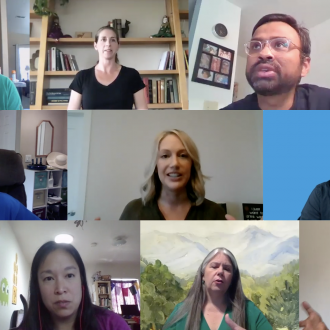MONDAY 9:40am – 10:00am USA / Canada – Pacific – March 28, 2022 | Room: Room 20BCD Theater 3
Justin Weinberg, Presenter
Session Type: Oral – In-person
Using digital learning and assessment tools to supplement course instruction has become prevalent in many undergraduate chemistry courses. However, a specific roadblock has existed for Organic Chemistry courses, which lies in the choice of the chemical structure drawing tool implemented in these digital learning products. Existing commercial drawing tools have plagued Organic Chemistry students and instructors for years with steep learning curves and an abundance of grading inaccuracies. Given the fundamental nature of drawing to any Organic Chemistry course, this can often be a make-or-break situation — causing many faculty to give up on technology altogether in preference of traditional paper exercises.
Chem101 is a web and mobile app-based platform that enables instructors to integrate chemistry-specific active learning exercises into lectures, homework, quizzes, or exams for first-year and Organic Chemistry courses. This presentation discusses the design, development, and implementation of the AktivGrid — a new, patent-pending drawing system in Chem101 that was created specifically to help students learn in Organic Chemistry courses and tackle some of the existing flaws in traditional drawing tools.
The AktivGrid was designed with three main goals: 1) to create an intuitive molecule drawing experience for students; 2) to support the wide breadth of learning activities in a full-year Organic Chemistry course that range from nomenclature, synthesis, mechanisms or “arrow drawing,” resonance, and spectroscopy; and 3) to deliver students rich, pedagogically-intelligent feedback that helps them learn directly from their mistakes as they answer different learning exercises. This presentation will provide an in-depth discussion into the implementation of AktivGrid’s adaptive, hexagonal grid design and how it was created to quickly introduce functional groups and support any molecular geometry. It will also discuss AktivGrid’s feedback engine, which parses individual properties of molecules (parent chain length, functional groups, regiochemistry, chirality, bond types, etc.) to generate a snapshot of student misconceptions. Finally, specific examples and live demonstrations will be presented, and early feedback from pilot use cases will be shared.













